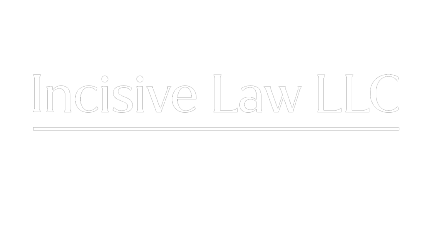In drafting a will, one is often advised to consider every possible situation conceivable so that the “what happens now?” situation does not arise. For instance, what if one’s husband perishes in a common accident? What happens if one’s children who inherits the house do not agree on what is to be done with it? What happens if one’s child loses his mental capacity?
What happens if one’s executor rejects the appointment? Even if one appoints alternate executors, the question may still arise. What if (even) my alternate executor renounces his right to act as such?
There are several reasons why there may be no executor to administer the estate:
(a) No executor is appointed by the will;
(b) The executor(s) appointed are legally incapable of or have renounced the right to act as such;
(c) No executor survives the testator (i.e. the person making the will);
(d) All the executors die before probate is obtained or before the estate is completely administered; or
(e) The executors appointed do not appear and extract probate.
Pursuant to section 13 of the Probate and Administration Act (Cap. 251) (the “Act”), on the failure of appointment of an executor in the situations set out above, the Court may grant letters of administration to person(s) which the Court deems fittest to administer the estate (in accordance with the terms under the will).
In this regard, the Act also sets out an order of priority of right to a grant:
i. The sole beneficiary of an estate or a beneficiary who receives the residuary estate under the will.
ii. If the beneficiary described in (i) above is deceased, the legal personal representative of that (deceased) person
iii. Such person or persons, being beneficiaries under the will, as would have been entitled to a grant of letters of administration if the deceased had died without a will.
iv. A beneficiary having a beneficial interest.
v. A creditor of the deceased.
Regardless whether the priority of right described above is acceptable (or even ideal) to you, we would recommend that thought be nonetheless given to who one’s executor should be, and at least who the alternate executor should be in the event that the first appointed executor is unable to act, for whatever reason. This would remove the stress and anguish that one’s loved ones may otherwise have to be confronted with having to (possibly) appear in Court for an application for the letters of administration. Needless to say, please also obtain the appointed executor’s agreement to act before penning down his or her name so that he or she can be prepared for the duties and responsibilities well in advance!
Rights of a beneficiary under a will
There is no dispute that wills are generally regarded as documents of a private nature. Unlike in the movies where the deceased’s lawyer comes to the house to read out the gifts made under the will, there is generally no requirement for anyone to do so.
You may have been told by your late mother before she passed that your family home was yours to inherit. But she did not name you executor of her will, nor are you aware of the terms of the will. You only know that you are to receive a part of her estate, and that your uncle was made executor of your late mother’s will. Unfortunately, you have not always been on good terms with your uncle. Could it be that he is delaying the process to prevent you from receiving what is rightfully yours?
If asking the executor is a futile exercise, what are your entitlements as a beneficiary? Are you entitled to a copy of the will?
Notwithstanding the (generally) private nature of wills, the will becomes a public document after it is filed in Court. By way of background, before the executor is entitled to administer the deceased’s estate, the executor must file an application in Court for the grant of probate, which requires, amongst other things, the executor to file the will.
In this regard, since the will becomes a public document, beneficiaries may apply to Court to request for inspection of the will. This may involve the filing of a sworn (or attested) statement by you of your knowledge of the existence of (and details of) the will.
However, please note that this does not automatically mean that the will will be made available for your inspection. Whether or not the Court grants the application will depend on the circumstances. Generally, if there is strong evidence to show that you are a beneficiary under the will or are otherwise entitled to the estate, the more likely an application will be granted.
Who should be my executor?
Technically speaking, anyone of sound mind above the age of 21 (and who is not a bankrupt) can be your executor.
Briefly, an executor is the person responsible for carrying out your wishes as set out in your will in the event you pass on. Their duties typically include making funeral arrangements, applying to Court for a grant of probate to allow them to start distributing your estate, locating your assets, settling any debts which you may owe and distributing your assets per your wishes under the will. Considering the duties of an executor, you would probably prefer to pick someone who you know personally and whom you trust. Crucially, a close relative or friend will often be in the best position to know you and your wishes well, as well as being fond of your beneficiaries.
That said, what happens if after your death your executor decides to reject his or her appointment? Particularly at a time of mourning, being faced with various administrative responsibilities and possibly a court appearance may be seen as burdensome and stressful.
A possible solution could be to alternatively, or in addition to your relative/friend, appoint a professional executor to guide your personally appointed executor through the process and/or to take charge of the more complex administrative duties. This will prove particularly useful in situations where more complex legal matters arise such as where it may be likely that relatives challenge the will (where they are intentionally left out without their knowledge), where assets are located overseas, or where there are trust instruments involved.
Please let us know if you require our assistance.
Planning for your stepchildren
When a non-Muslim person passes on without leaving behind a valid will….
When a non-Muslim person passes on without leaving behind a valid will (or if the will cannot be located), that person is said to have died intestate and the distribution of that person’s estate is governed by provisions of the Intestate Succession Act (the “ISA”). The default rules under the ISA, however, often do not reflect the true intentions of the deceased person, particularly where the deceased had stepchildren to whom he or she wanted to leave his or her inheritance.
Let’s look at the case of Low Guang Hong David and others v Suryono Wino Goei….
This issue was explored in the case of Low Guang Hong David and others v Suryono Wino Goei [2012] 3 SLR 185 (“Low Guang Hong”). In Low Guang Hong, the plaintiffs were one Mr Low (deceased)’s children from his first marriage, and Mdm Lina (deceased)’s stepchildren. Mdm Lina was Mr Low’s second wife, and Mr Low and Mdm Lina had no children between them. Mr Low’s estate was bequeathed to Mdm Lina upon his death.
By way of further background, it was said that the plaintiffs were treated by Mdm Lina as if they were her own children, while an unsigned will apparently leaving Mdm Lina’s estate to the plaintiffs was found in her safe deposit box with a bank after her demise, no evidence was adduced as to how the unsigned will came about.
In Low Guang Hong, the plaintiffs sought a declaration that “child” under the ISA was to be interpreted to include a stepchild. In this way, the plaintiffs would be deemed to be Mdm Lina’s “children” under the ISA and they would then be entitled to Mdm Lina’s estate to the exclusion of her only brother, the defendant in the action.
Under section 3 of the ISA:
“child” means a legitimate child and includes any child adopted by virtue of an order of court under any written law for the time being in force in Singapore, Malaysia or Brunei Darussalam
However, after analysing the ISA and certain other statutes, including the Women’s Charter and the Maintenance of Parents Act, the Court refused the declaration sought by the plaintiffs. Detailed reasons for the Court’s decision are set out in the learned judge’s decision, but what we wish to highlight is this issue arising from not having a valid will, i.e. that the failure of intestacy rules to achieve the outcome that the deceased might have desired.
Since these default rules apply in all (non-Muslim) cases of intestacy, more likely than not, this one-size-fits-all approach results in a distribution that is unlikely to be what the deceased would have desired.
If it was true that the unsigned will was prepared by Mdm Lina (but it was ultimately not properly executed due to some unfortunate reason), it would have meant that Mdm Lina intended to bequeath her assets to her stepchildren on her death, and the rules of intestacy would not have achieved that goal for her.
5 common mistakes when writing a will
A will is your most important estate planning tool and one of the most critical documents you will prepare.
Erring on the side of caution would be prudent as a small mistake can have severe repercussions on your loved ones, crucially since you will not be around to rectify those mistakes. We have listed below 5 common mistakes to avoid when drafting your will, especially when you have decided to do so without professional help:-
1. Forgetting to update your will when your circumstances change
Under the law, marriage will revoke any will written prior to it, with a few rare exceptions.
A divorce, on the other hand, does not revoke an existing will, so it is important that you update/change your will accordingly to reflect your new circumstances, especially where you have given some part of your estate to your ex-spouse.
The birth of a child is also another situation which renders a review of your will necessary.
2. Omitting a residuary clause
A residuary clause is a catch-all clause that dictates how assets which are not accounted for are to be distributed. This is particularly useful in the event you are not distributing the entirety of your assets by way of specified percentages. A residuary clause covers the rest of your property that is not specifically mentioned in your will, such as those assets you have acquired after the making of the will. Without such a clause, you risk having property that is not covered by the will distributed by the rules of intestacy instead of according to your wishes.
3. Certain assets cannot be distributed through your will
CPF money does not form part of the estate and cannot be distributed by your will. In order to ensure that your CPF savings is distributed in accordance to your wishes, you need to make a separate CPF nomination under the CPF Act.
Property owned by you with another person under a joint tenancy will automatically devolve on the survivor regardless of anything stated in your will; although you can make provisions in the will contemplating the situation whereby your co-owner dies before you, rendering you the sole owner of the property, in which case you will be free to leave it to any person of your choice.
4. Not having 2 witnesses to your will
You need to have 2 witnesses at the signing of your will. Please note that the 2 witnesses must not be beneficiaries in your will, otherwise they risk losing their entitlements under the will. This legal requirement prevents any potential conflict of interests.
5. Failing to consider guardianship of children
You are able to name the guardian who will raise your children (under 21 years of age) in the event of your death in your will. You should choose any guardian carefully and make sure that they are willing to act. Where both parents of the child are still alive, they will typically have to come to an agreement about who is to be the guardian of the child. The guardian is not necessarily the executor, who is tasked with looking after your estate. Guardians and executors have distinctly different roles.
Should you have any questions about the drafting of wills, we will be happy to assist you.





